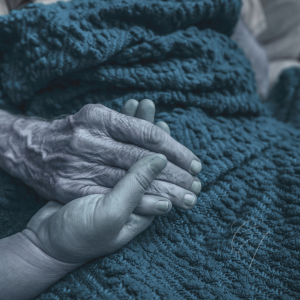How End-of-Life Doulas Complement Hospice and Enhance Your Family’s Care Journey

When families first hear about end-of-life doulas, there’s often a moment of confusion. “Wait, isn’t that what hospice does?” It’s a totally understandable question, and honestly, one that comes up all the time. The truth is, end-of-life doulas and hospice care aren’t competing services: they’re actually incredible partners working together to create the most supportive, comprehensive care experience possible.
Think of it this way: if hospice is the medical expert making sure your loved one is physically comfortable, an end-of-life doula is like having a wise, compassionate friend who helps with everything else that comes up during this profound journey.
Understanding the Beautiful Partnership
Hospice care focuses primarily on managing pain, symptoms, and medical needs through a skilled interdisciplinary team. They’re the clinical experts who ensure your loved one stays as comfortable as possible from a medical standpoint. End-of-life doulas, on the other hand, are non-medical companions who address the emotional, spiritual, and practical needs that naturally arise during this time.
Hospice teams manage multiple patients and focus on essential care, stretching them thin. While they definitely offer emotional support, they might not have the time to sit and listen to all the thoughts and memories your mom has.
That’s exactly where doulas shine. They fill those gaps with patience, presence, and personalized attention that enhances the medical care without interfering with it.
The Unique Support Doulas Bring to Your Family
Emotional and Spiritual Companionship
One of the most beautiful things about working with an end-of-life doula is the gift of unhurried time. While hospice nurses might have 20 minutes for a visit, doulas can stay hours if needed. They provide active listening, gentle touch, and help reduce the anxiety and isolation that often come with facing death.
Doulas support families of any faith background or none at all. They facilitate meaningful conversations about life, death, and what matters most, without pushing any particular spiritual agenda.
Practical Life Support
Let’s be real: when someone is dying, life doesn’t stop happening around them. Bills still need paying, groceries still need buying, and someone still needs to walk the dog. End-of-life doulas often provide practical assistance like:
- Running errands and helping with household tasks
- Providing transportation to appointments
- Assisting with organizing important documents
- Helping coordinate care schedules among family members

Legacy Work and Memory Making
This is where doulas really excel. They assist individuals and families in creating meaningful legacy projects, such as organizing photo albums or writing letters to be opened later. These activities give both the dying person and their family a sense of purpose and connection during a difficult time.
How Doulas Enhance the Hospice Experience
Advocacy and Communication
Doulas often serve as gentle advocates, helping ensure your loved one’s non-medical wishes are understood and honored. They can facilitate difficult conversations between family members or hospice providers.
Caregiver Support and Respite
Family caregivers often push themselves to the point of exhaustion, thinking they need to be “on” 24/7. Doulas provide much-needed respite care, allowing family members to rest, run errands, or simply take a mental health break. This isn’t just nice to have: it’s essential for preventing caregiver burnout and ensuring everyone can be present in a meaningful way.
Education and Preparation
Doulas help families understand what to expect during the dying process, which can significantly reduce anxiety and fear. They explain the natural signs and symptoms that occur, help families prepare for vigil time, and guide them through decisions about end-of-life preferences in language that’s easy to understand.
The Timeline: When Doulas Get Involved
Doulas can step in earlier than hospice care, which usually does not start until a patient is within six months of death. Some families benefit from doula support immediately after a terminal diagnosis, while others reach out closer to the end of life. There’s no “right” time: it’s about when additional support would be helpful for your unique situation.
Many doulas also provide bereavement support that continues after death, helping families process their grief and navigate the early stages of loss. This ongoing care bridges the gap after hospice services end, providing continuity during a vulnerable time.
Working Together as a Team
The most effective end-of-life care happens when doulas and hospice teams work collaboratively. Doulas communicate with medical staff to ensure consistency in care approaches and share relevant observations about the patient’s emotional or spiritual needs. Many hospice organizations now incorporate doulas directly into their teams, recognizing the value they bring to comprehensive care.
If your hospice team doesn’t have an in-house doula, any independent doula you hire should be willing and able to work seamlessly with your existing care providers. The best doulas understand their role as part of a larger support network, not as lone wolves working independently.

Creating a More Peaceful Journey
When families have both hospice care and doula support, something beautiful happens. The dying person feels more supported and less anxious when they are holistically cared for. Family members feel less overwhelmed because they’re not trying to be everything to their loved one. The environment becomes more peaceful because everyone can focus on connection and meaning-making rather than scrambling to manage all the moving pieces.
What This Means for Your Family
If you’re considering hospice care for a loved one, it’s worth exploring whether adding doula support would enhance your experience. Every family’s needs are different, and there’s no judgment either way. Some families feel fully supported by their hospice team, while others find that a doula’s additional presence makes an enormous difference.
The key is understanding that you have options, and that choosing comprehensive support isn’t about replacing one service with another: it’s about creating the most supportive, loving environment possible during one of life’s most profound transitions.
Remember, this journey doesn’t have to be navigated alone. Whether through hospice care, doula support, or ideally both working together, help is available to ensure your loved one’s final chapter is filled with comfort, dignity, and connection.
At Compassionate Transitions, we’re here to help you understand all your options and find the right combination of support for your family’s unique needs. Because everyone deserves to face this journey with the comprehensive care and compassion they need.
November 26, 2025
- Laurie J.
The additional grief doula training Beth has completed makes her service unique, as she is able to offer additional insight and support for families as they move through bereavement. As a fellow end-of-life doula, I endorse the care that Beth provides, and refer to her patients I’m unable to accommodate. Compassion, firsthand experience, and her willingness to go above and beyond make Beth’s doula practice a great choice for any family.
testimonial
Beth’s background in caring for her mother at end of life gives her a unique perspective on not only the needs of the patient, but also the needs of the family.
As an End-of-Life Doula, I am not a medical professional and cannot and do not offer medical advice or care.
Based in Plymouth, Minnesota
@compassionatetransitions
You can view my profile on the Grief Support Center National Directory, a resource connecting people to grief support professionals nationwide, here: Grief Support Center Profile
COPYRIGHT 2023 COMPASSIONATE TRANSITIONS | BRANDING & WEBSITE BY THE MUG CREATIVE
PRIVACY POLICY